The Great Warrior Skanderbeg is a film of genre Drama directed by Sergueï Ioutkevitch with Naim Frashëri
The Great Warrior Skanderbeg (1953)
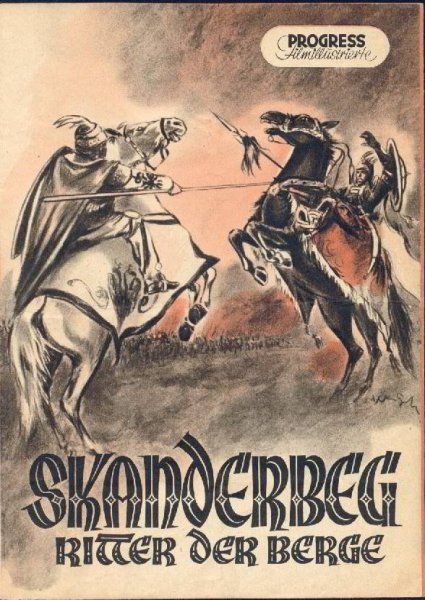
If you like this film, let us know!
The Great Warrior Skanderbeg (Albanian: Skenderbeu, Russian: Velikiy voin Albanii Skanderbeg) is a 1953 Albanian-Soviet drama film directed by Sergei Yutkevich. It was entered into the 1954 Cannes Film Festival where it earned the International Prize. Yutkevich also earned the Special Mention award for his direction.
The film is a biography of George Kastriot Skanderbeg (1405 – 1468), widely known as Skanderbeg, a 15th-century Albanian lord who defended his land against the Ottoman Empire for more than two decades.
In 2012, for the 100th anniversary of Albanian independence, the film was remastered for high definition with new voices, music, and sound effects.
Actors

Naim Frashëri
(Pal)
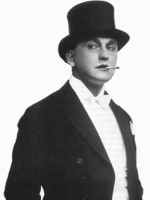
Alexander Vertinsky
(Doge of Venice)

Marie Logoreci
(Kontesha)

Kadri Roshi

Sergo Zakariadze
Comments
Leave comment :
Suggestions of similar film to The Great Warrior Skanderbeg
There are 0 films with the same actors, 10 films with the same director, 71585 with the same cinematographic genres (including 662 with exactly the same 3 genres than The Great Warrior Skanderbeg), to have finally 70 suggestions of similar films.If you liked The Great Warrior Skanderbeg, you will probably like those similar films :

Lenin in Paris (1981)
, 1h44Directed by Sergueï Ioutkevitch
Origin Russie
Genres Drama, Historical
Themes Political films
Actors Claude Jade, Yuriy Kayurov, Pavel Kadotchnikov, Albert Filozov, Galina Belyayeva
Rating50%





Russian revolutionary Vladimir Lenin spent four years in Paris (1909–1912), and this historical docudrama explores those years with a certain amount of humor. Lenin is shown visiting with friends, the meetings with his later mistress Inessa Armand (in the movie she is in love with a young communist, Trofimoff), while several of his philosophical views and economic and political theories are mouthed by a former colleague who narrates the film and brings the material into the present...

Subject for a Short Story (1969)
, 1h26Directed by Sergueï Ioutkevitch
Origin Russie
Genres Drama, Biography, Comedy-drama
Themes Films about writers
Actors Marina Vlady, Nikolai Grinko, Iya Savvina, Yury Yakovlev, Rolan Bykov, Evgueni Lebedev
Rating68%





Anton Tchekhov se remémore la passion qu'il éprouva, avant son mariage avec l'actrice Olga Knipper, pour la chanteuse Lika Mizinova qui lui inspira plus tard le personnage de Nina de sa pièce La Mouette.

Shame (1932)
, 1h58Directed by Fridrikh Ermler, Sergueï Ioutkevitch
Origin Russie
Genres Drama
Themes Politique, Films about the labor movement, Political films
Actors Vladimir Gardine, Andrei Abrikosov, Maria Blumenthal-Tamarina, Stepan Krylov, Nikolai Cherkasov, Zoya Fyodorova
Rating64%






Hello, Moscow! (1945)
, 1h26Directed by Sergueï Ioutkevitch
Genres Musical theatre, Historical, Musical
Themes Musical films
Actors Sergueï Filippov, Pavel Kadotchnikov, Stepan Kayukov
Rating60%





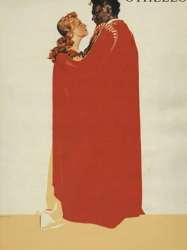
Othello (1956)
, 1h47Directed by Sergueï Ioutkevitch
Genres Drama
Themes Seafaring films, Théâtre, Transport films, Films based on plays, Films based on works by William Shakespeare
Actors Serge Bondartchouk, Irina Skobtseva, Evgueni Iakovlevitch Vesnik, Andrei Popov, Ysanne Churchman, Kathleen Byron
Rating71%






Lenin in Poland (1966)
, 1h38Directed by Sergueï Ioutkevitch
Origin Russie
Genres Drama
Actors Tadeusz Fijewski, Ludwik Benoit, Gustaw Lutkiewicz, Zbigniew Skowroński, Wanda Jakubińska, Jerzy Nowak
Rating68%





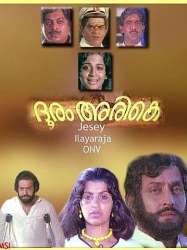
Yakov Sverdlov (1940)
, 2h10Directed by Jaycey kuttikkat, Sergueï Ioutkevitch
Genres Historical
Actors M. G. Soman, Sukumaran, Sreevidya, Ambika, K. P. Ummer, Nikolai Kryuchkov
Dooram Arike is an emotional family film of love and sacrifice.

Yakov Sverdlov (1940)
, 2h4Directed by Sergueï Ioutkevitch
Genres Biography, Historical
Themes Politique, Political films
Actors Leonid Lioubachevski, Pavel Kadotchnikov, Nikolai Kryuchkov, Stepan Kayukov
Rating59%





En 1902, dans la ville russe de Nijni Novgorod, le jeune révolutionnaire Yakov Sverdlov, grâce au soutien financier de Maxime Gorki, se procure une presse pour pouvoir imprimer clandestinement de la propagande anti-tsariste. Trois ans plus tard, Sverdlov dirige l'agit-prop dans l'Oural, incitant les ouvriers à se révolter par les armes contre le régime tsariste, mais il est arrêté et envoyé dans les camps en Sibérie. En 1917, quand Nicolas II est renversé, il occupe rapidement un poste politique important.
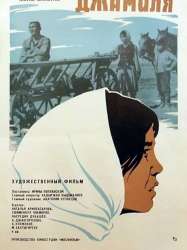
Dzhamilya (1969)
, 1h23Directed by Sergueï Ioutkevitch
Origin Russie
Genres Drama, War, Romance
Actors Natalya Arinbasarova, Souïmenkoul Tchokmorov
Rating73%





L'orthographe des noms propres n'est pas celle des sous-titres mais celle fournie par Louis Aragon qui a traduit la nouvelle avec A. Dmitrieva.
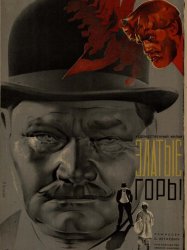
Golden Mountains (1931)
Directed by Sergueï Ioutkevitch
Genres Drama
Actors Stepan Kayukov, Boris Chirkov
Rating65%





 Connection
Connection